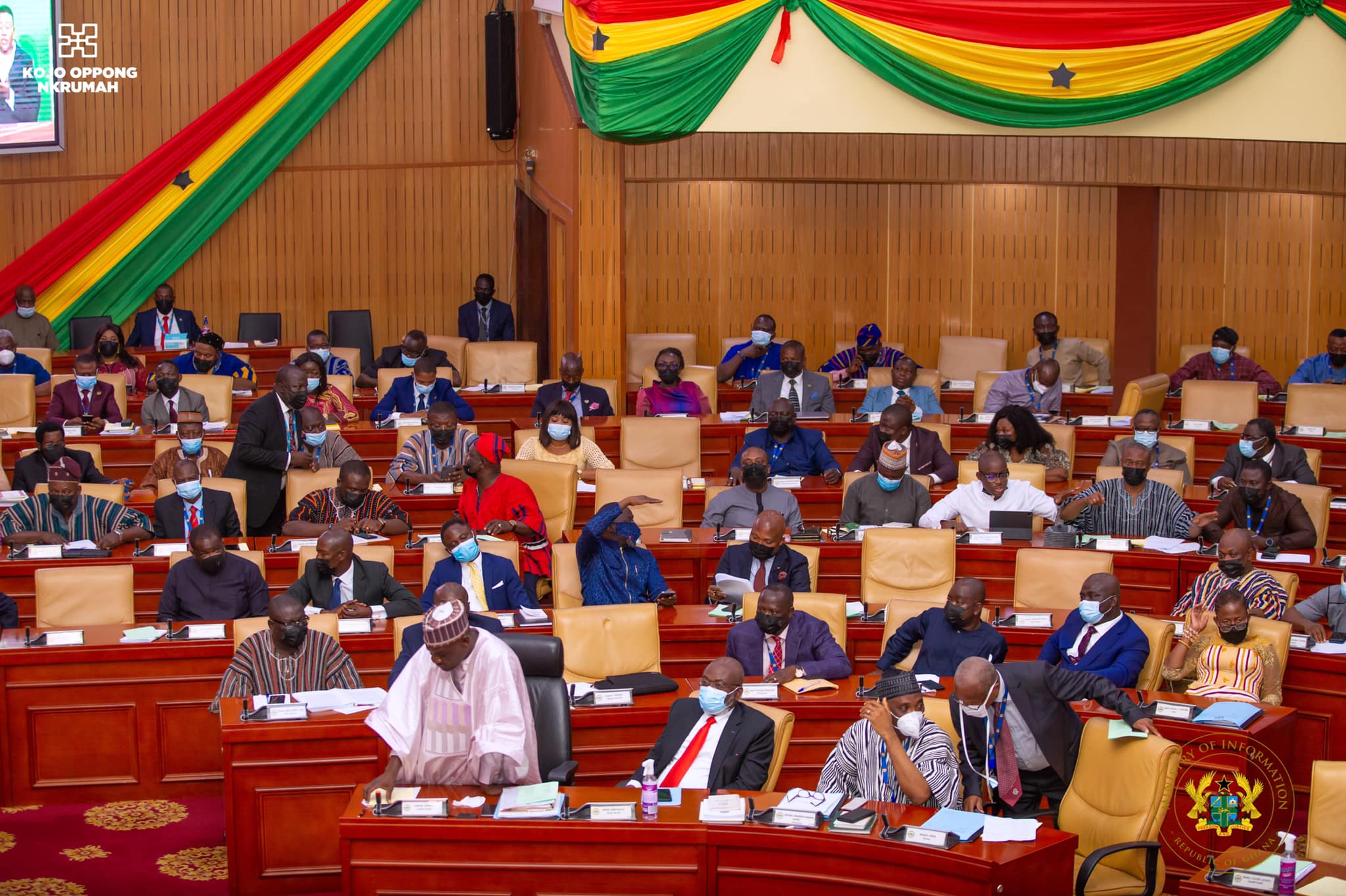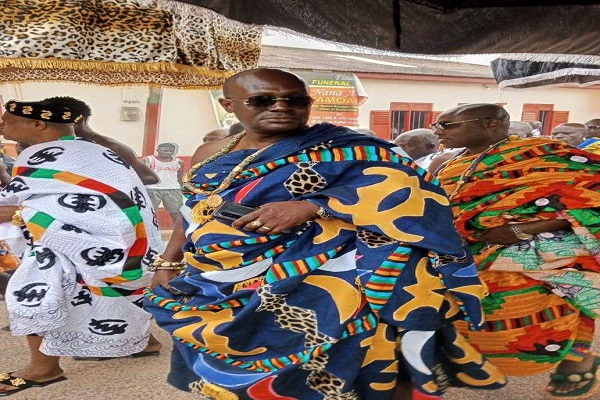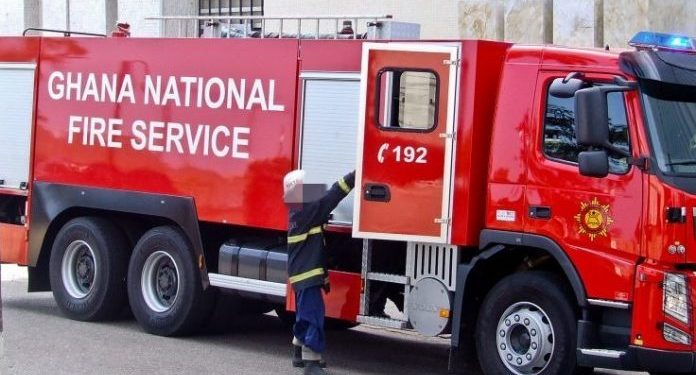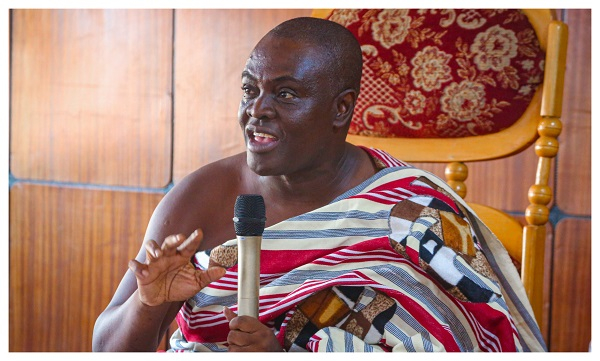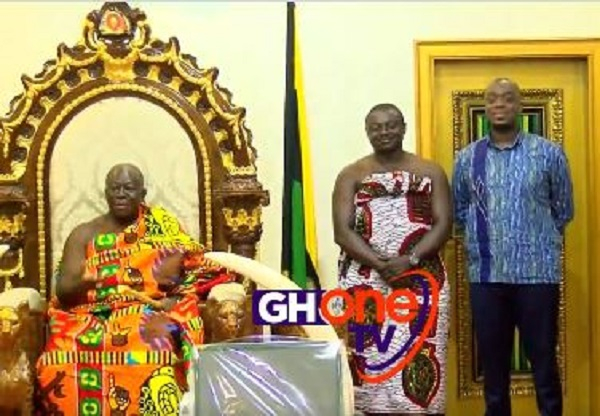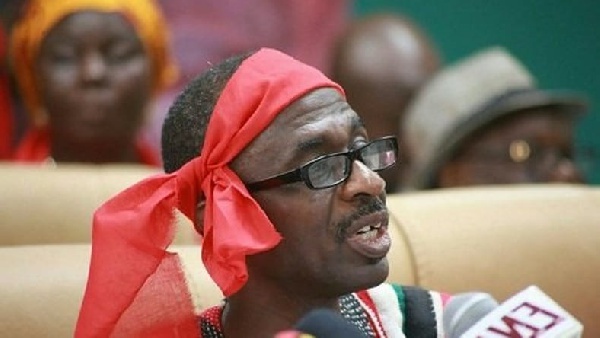
What Kojo Tsikata said about Francis Poku at NRC

Captain Kojo Tsikata (Rtd) narrated his encounter with Francis Poku
This was during the National Reconciliation Commission
Captain Kojo Tsikata (Rtd) died on Saturday, November 20
When former President John Agyekum Kufuor established the National Reconciliation Commission in January 2002 by an Act of Parliament, the late Captain Kojo Tsikata (Rtd), who appeared as a witness gave vivid testimony about his encounter with former Minister for National Security [2001-2009], Francis Poku, during the days of the revolution.
According to the late Tsikata (Rtd), Francis Poku, who was also a Deputy Superintendent of Police (DSP) ordered that he [Tsikata] was beaten and tortured until he went unconscious in 1975.
Tsikata narrated to the NRC that, at the time of the incident, Mr Poku had ordered him to sign some papers confessing to a crime of attempting to topple the SMC regime but he [Tsikata] refused.
"When I refused to write such a statement he got angry, insulted me and asked Sergeant Boateng to take me to a special room upstairs.
"This was the torture room where I was immediately set upon by Sgt Boateng, Cpl Ebo Duncan and Cpl Seidu, and severely brutalised until I became unconscious. When I came round I was lying in a pool of blood in the reception room downstairs.
“The next morning Mr. Francis Poku visited me in my cell and, pretending to apologise for what had happened the previous day, said that he had no alternative as he was under pressure from the SMC to get a confession from me," Captain Kojo Tsikata (Rtd) explained.
Read below the full account of Captain Kojo Tsikata (Rtd) at NRC culled out from mynewsgh report
Subsequently, I was told I was being investigated on suspicion of involvement in a plot to overthrow the government. I recall an occasion when I was locked in a room with the battered, bleeding and unconscious body of Major Quarshie, another detainee, and warned by Lance Corporal Ebo Duncan that if I did not co-operate I would suffer the same fate.
I was taken, on a number of occasions clad only in my blanket, before a panel chaired by Mr. Francis Poku, at the time a Deputy Superintendent of Police at the Special Branch. The panel included Major Oppong-Addae of Military Intelligence, and Mr. Abudu and Mr. Anafi of the Special Branch.
Once, when I appeared before the Panel, Mr Francis Poku said he had orders from the SMC to beat me to death if I failed to write a confession along the lines he was suggesting and advised me to co-operate, as he did not want anybody’s death on his conscience.
When I refused to write such a statement he got angry, insulted me and asked Sergeant Boateng to take me to a special room upstairs. This was the torture room where I was immediately set upon by Sgt Boateng, Cpl Ebo Duncan and Cpl Seidu, and severely brutalised until I became unconscious. When I came round I was lying in a pool of blood in the reception room downstairs.
The next morning Mr. Francis Poku visited me in my cell and, pretending to apologise for what had happened the previous day, said that he had no alternative as he was under pressure from the SMC to get a confession from me.
A few days later Capt Dr. Duncan was sent to examine me and treat me for my injuries. This pattern of torture was followed by visits from Mr Francis Poku and by Capt (Dr.) Duncan was repeated a number of times between December 1975 and January 1976.
One day the young women working at the offices of the Interrogation Centre were invited to watch the torture session. I remember that Cpl Seidu was nicknamed “Carpenter” because one of his functions was to hammer nails into the testicles and ram sticks into the anuses of suspects.
In January 1976 I was transferred to Usher Fort Prison. There I met a 63-year-old man, Ebenezer Allotey, who recounted similar experiences at the hands of the same torture squad. He collapsed and died a few days later in my presence. The case of Mr Allotey as well as my case and others are documented by the human rights organisation Amnesty International.
It is significant that some of the perpetrators of these abuses currently occupy high positions in the country’s security apparatus. No political tradition or grouping, no regime or institution has had a monopoly on the abuse of the rights of fellow citizens in our country’s history.
It is critical that the exercise of reconciliation should be comprehensive and not be seen as selective, partisan or discriminatory. Although this Commission is not officially named a “Truth and Reconciliation Commission” it is important that the truth of alleged abuses is established, that claims as to what happened are verified and assessed in their context and that deliberately false claims be dismissed and treated with the contempt that they deserve.
It should not be the case that anything goes, or that the more dramatic and exaggerated an allegation is the more likely it is to be welcomed as truth provided it is directed against a particular regime or particular individuals.
This was during the National Reconciliation Commission
Captain Kojo Tsikata (Rtd) died on Saturday, November 20
When former President John Agyekum Kufuor established the National Reconciliation Commission in January 2002 by an Act of Parliament, the late Captain Kojo Tsikata (Rtd), who appeared as a witness gave vivid testimony about his encounter with former Minister for National Security [2001-2009], Francis Poku, during the days of the revolution.
According to the late Tsikata (Rtd), Francis Poku, who was also a Deputy Superintendent of Police (DSP) ordered that he [Tsikata] was beaten and tortured until he went unconscious in 1975.
Tsikata narrated to the NRC that, at the time of the incident, Mr Poku had ordered him to sign some papers confessing to a crime of attempting to topple the SMC regime but he [Tsikata] refused.
"When I refused to write such a statement he got angry, insulted me and asked Sergeant Boateng to take me to a special room upstairs.
"This was the torture room where I was immediately set upon by Sgt Boateng, Cpl Ebo Duncan and Cpl Seidu, and severely brutalised until I became unconscious. When I came round I was lying in a pool of blood in the reception room downstairs.
“The next morning Mr. Francis Poku visited me in my cell and, pretending to apologise for what had happened the previous day, said that he had no alternative as he was under pressure from the SMC to get a confession from me," Captain Kojo Tsikata (Rtd) explained.
Read below the full account of Captain Kojo Tsikata (Rtd) at NRC culled out from mynewsgh report
Subsequently, I was told I was being investigated on suspicion of involvement in a plot to overthrow the government. I recall an occasion when I was locked in a room with the battered, bleeding and unconscious body of Major Quarshie, another detainee, and warned by Lance Corporal Ebo Duncan that if I did not co-operate I would suffer the same fate.
I was taken, on a number of occasions clad only in my blanket, before a panel chaired by Mr. Francis Poku, at the time a Deputy Superintendent of Police at the Special Branch. The panel included Major Oppong-Addae of Military Intelligence, and Mr. Abudu and Mr. Anafi of the Special Branch.
Once, when I appeared before the Panel, Mr Francis Poku said he had orders from the SMC to beat me to death if I failed to write a confession along the lines he was suggesting and advised me to co-operate, as he did not want anybody’s death on his conscience.
When I refused to write such a statement he got angry, insulted me and asked Sergeant Boateng to take me to a special room upstairs. This was the torture room where I was immediately set upon by Sgt Boateng, Cpl Ebo Duncan and Cpl Seidu, and severely brutalised until I became unconscious. When I came round I was lying in a pool of blood in the reception room downstairs.
The next morning Mr. Francis Poku visited me in my cell and, pretending to apologise for what had happened the previous day, said that he had no alternative as he was under pressure from the SMC to get a confession from me.
A few days later Capt Dr. Duncan was sent to examine me and treat me for my injuries. This pattern of torture was followed by visits from Mr Francis Poku and by Capt (Dr.) Duncan was repeated a number of times between December 1975 and January 1976.
One day the young women working at the offices of the Interrogation Centre were invited to watch the torture session. I remember that Cpl Seidu was nicknamed “Carpenter” because one of his functions was to hammer nails into the testicles and ram sticks into the anuses of suspects.
In January 1976 I was transferred to Usher Fort Prison. There I met a 63-year-old man, Ebenezer Allotey, who recounted similar experiences at the hands of the same torture squad. He collapsed and died a few days later in my presence. The case of Mr Allotey as well as my case and others are documented by the human rights organisation Amnesty International.
It is significant that some of the perpetrators of these abuses currently occupy high positions in the country’s security apparatus. No political tradition or grouping, no regime or institution has had a monopoly on the abuse of the rights of fellow citizens in our country’s history.
It is critical that the exercise of reconciliation should be comprehensive and not be seen as selective, partisan or discriminatory. Although this Commission is not officially named a “Truth and Reconciliation Commission” it is important that the truth of alleged abuses is established, that claims as to what happened are verified and assessed in their context and that deliberately false claims be dismissed and treated with the contempt that they deserve.
It should not be the case that anything goes, or that the more dramatic and exaggerated an allegation is the more likely it is to be welcomed as truth provided it is directed against a particular regime or particular individuals.
Source: ghanaweb.com
Source:
GhanaWeb
Scroll to Top

